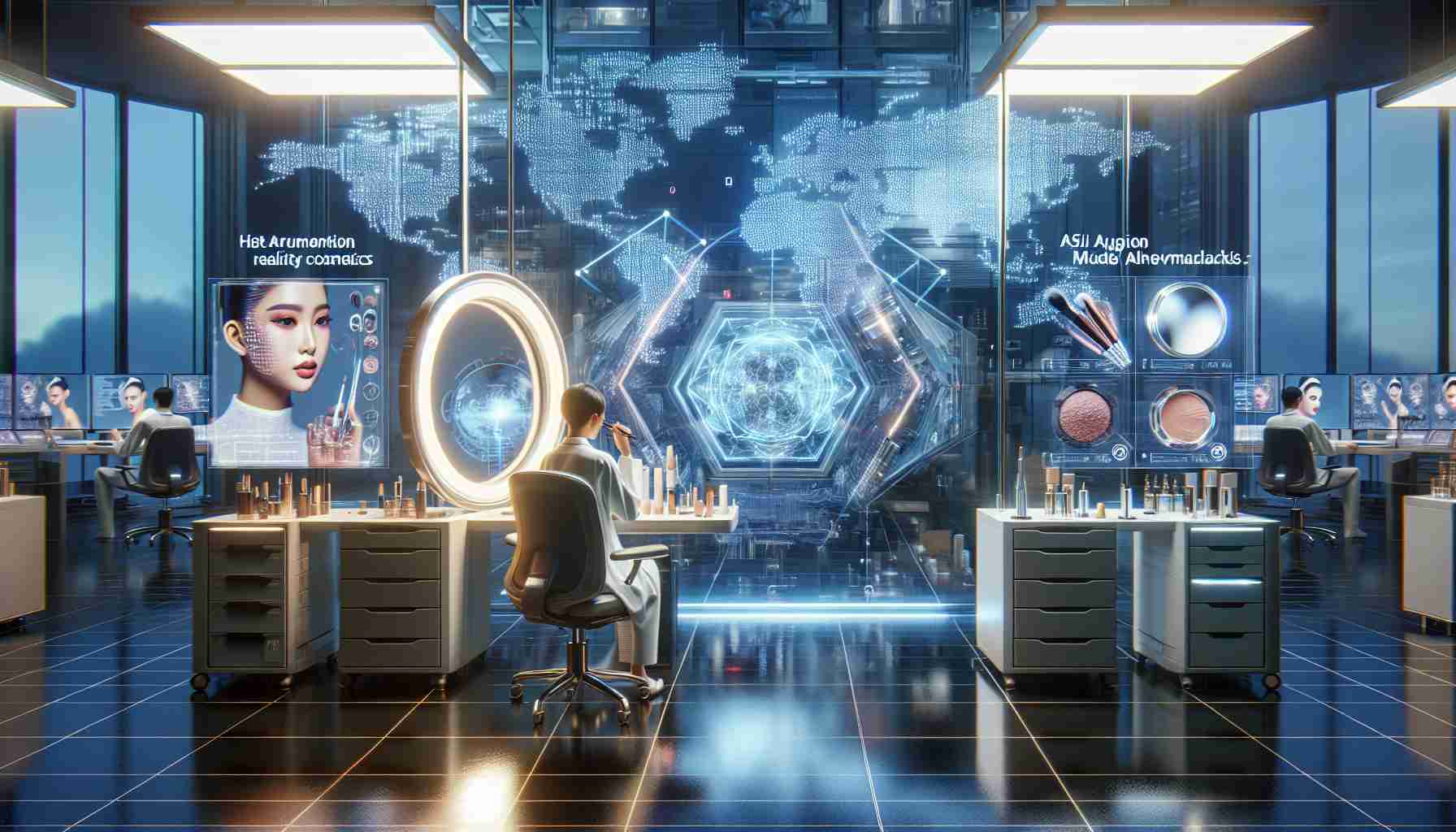- L’Oréal launches the 2025 Big Bang Beauty Tech Innovation Program in the SAPMENA region, now including Australia and New Zealand.
- The program offers start-ups a chance for a commercial pilot and year-long mentorship with L’Oréal’s senior executives.
- Participants will explore themes such as Science for Beauty, Consumer Experience, Content & Media, New Commerce, and Tech for Good.
- L’Oréal aims to discover and accelerate new talent, driving innovation in the beauty tech sector.
- The initiative emphasizes collaboration between L’Oréal and tech-savvy start-ups in the SAPMENA region.
- L’Oréal envisions transformative beauty solutions that redefine consumer engagement with the industry.
A dazzling opportunity has emerged for aspiring beauty tech pioneers as L’Oréal unveils its groundbreaking 2025 Big Bang Beauty Tech Innovation Program across the bustling SAPMENA region. Start-ups are vying for the chance to partner with this beauty titan, igniting dreams with a vision for the future of skincare and beauty treatments.
Imagine the creative energy of innovating under the guidance of L’Oréal’s senior executives. This unique program promises not just a commercial pilot with one of its legendary brands, but a year-long mentorship that could transform fledgling companies into formidable players in the beauty industry. This year, the program casts its net further, embracing Australia and New Zealand into its expansive fold, and stands as the most extensive beauty tech competition the region has ever seen.
Applicants will tackle five intriguing themes, including an enticing new challenge for 2025: Science for Beauty. Alongside, visions must unfold within the realms of Consumer Experience, Content & Media, New Commerce, and Tech for Good.
L’Oréal’s ambition is clear: to uncover and accelerate the talents of the next wave of innovators. President Vismay Sharma highlights the immense potential inherent in the SAPMENA region’s vibrant start-up scene, which thrives on tech-savvy consumers hungry for cutting-edge solutions. By joining forces with promising tech start-ups, L’Oréal aims to propel innovation forward at an electrifying pace.
This initiative underlines a transformative moment—one where collaboration between a beauty industry giant and vibrant new voices could lead to inventive breakthroughs, redefining how consumers engage with beauty. It’s a call to inventors, creators, and dreamers everywhere.
The Future of Beauty Tech: L’Oréal’s Innovative Push into 2025 and Beyond
How-To Steps & Life Hacks for Aspiring Beauty Tech Entrepreneurs
If you’re looking to leverage beauty technology, participating in a program like L’Oréal’s Big Bang Beauty Tech Innovation can be transformative. Here are steps to enhance your chances:
1. Research and Align:
– Understand each challenge theme (Science for Beauty, Consumer Experience, Content & Media, New Commerce, Tech for Good). Identify which aligns with your project vision.
2. Innovate and Develop:
– Focus on integrating emerging technologies like AI, AR, and IoT in skincare or beauty products to appeal to tech-savvy markets.
3. Prepare Your Pitch:
– Demonstrate the commercial potential and societal impact of your innovation; showing how it can scale is crucial.
4. Seek Mentorship:
– Utilize the mentorship opportunities to refine your ideas with L’Oréal’s guidance.
5. Network and Collaborate:
– Engage in the start-up and tech communities to glean insights and foster collaborations.
Real-World Use Cases
Innovations from such programs can lead to groundbreaking products like:
– AI-Powered Skin Analyzers: Offering personalized product recommendations.
– AR Makeup Apps: Allowing virtual try-ons, which enhance consumer experiences.
– Sustainable Packaging Solutions: Utilization of eco-friendly materials and smart designs that appeal to environmentally-conscious consumers.
Market Forecasts & Industry Trends
Beauty tech is on the rise with trends such as:
– Personalization: Consumers expect beauty routines tailored to their unique profiles.
– Sustainability: Demand grows for sustainable and ethical practices.
– Diversity and Inclusion: Products catering to a wider variety of skin tones and types are gaining traction.
Reviews & Comparisons
L’Oréal’s program stands out among beauty incubators by offering:
– Structured Mentorship: Personalized guidance from industry veterans.
– Commercial Piloting: Real-world application opportunities with established brands.
Controversies & Limitations
While exciting, beauty tech faces several challenges:
– Privacy Concerns: Especially with data from AI solutions.
– Consumer Trust: Navigating skepticism towards new tech in personal care.
Features, Specs & Pricing
Look for innovations that integrate competitive features such as real-time data analytics, high precision in virtual try-ons, and sustainable materials without a significant price premium.
Security & Sustainability
Ensure that your technology upholds data privacy standards and promotes sustainable practices. L’Oréal’s program emphasizes tech for good, driving a commitment to eco-conscious innovation.
Insights & Predictions
Industry experts predict:
– Increased AI Integration: More brands will incorporate AI for efficiency and personalization.
– Growth in Sustainable Products: Eco-friendly innovations will propel market growth.
Pros & Cons Overview
Pros:
– Access to extensive resources and networks.
– Possibility of scaling through commercial pilots.
Cons:
– Highly competitive with rigorous selection processes.
Actionable Recommendations
– Develop a Multi-faceted Approach: Address technology, consumer experience, and sustainability in your proposal.
– Stay Updated on Industry Trends: Regularly review beauty tech reports to remain competitive.
– Emphasize Data Privacy: Prioritize consumer trust with robust security measures.
For more information and engagement with L’Oréal’s platforms, visit link name.
By capitalizing on the convergence of beauty and technology, you may drive magnificence into the future, redefining consumer interactions and setting new industry standards.
